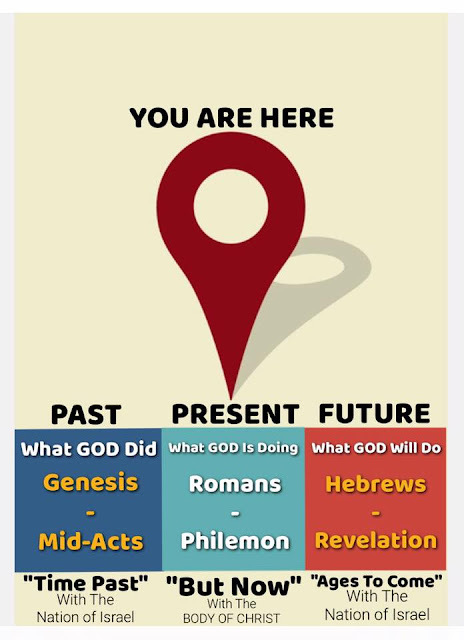Dispensationalism is basically the method of interpreting the scriptures that sees two distinct peoples of God, with two distinct destinies – Israel and the Church. A dispensationalist is a person who will affirm one or more of the following tenets.
1. The Church is not the continuation of God's Old Testament people, but a distinct body born on the Day of Pentecost.
2. The Church is never equated with Israel in the New Testament, and Christians are not Jews, true Israel, etc.
3. The prophecies made to Israel in the Old Testament are not being fulfilled in the Church, nor will they ever be.
4. The Church does not participate in the New Covenant prophesied in the Old Testament; it is for ethnic Israel, and will be established in a future millennial kingdom.
5. The Old Testament saints were saved by faith alone, on the basis of the Calvary-work of Christ alone; however, the object of their faith was not Christ, but rather the revelation peculiar to their dispensation.
6. The Old Testament saints did not know of the coming “Church Age,” of the resurrection of Christ, or basically, of what we today call the gospel.
7. When Jesus came to earth, he offered the Jews a physical kingdom, but they rejected him.
8. When Jesus proclaimed “the gospel of the Kingdom,” it was the news about how ethnic Jews might enter and find rewards in this physical kingdom, and is to be distinguished from the gospel as defined in I Corinthians 15:3-4, which the apostles later proclaimed to the church.
9. After the Jews rejected Jesus' kingdom offer, he inaugurated a parenthetical “Church Age”, which will be concluded immediately before God again takes up his dealings with his national people, ethnic Israel.
10. During the “Church Age,” Jesus is not reigning from the throne of David; he is engaged instead in his priestly work, and his kingly work will take place in the future millennial kingdom.
11. At some unspecified but imminent time, Jesus will return (but not all the way to earth, just to the air) and rapture his Church, also called his Bride; for the following seven years, they will feast with him at the marriage supper of the Lamb; meanwhile, on earth, he will begin to deal with his national people, ethnic Israel, again, calling them to himself and preserving them in the midst of seven years of great tribulation; at the midpoint of which, the Antichrist will set himself up as god in the rebuilt Jewish temple, and demand worship from the world.
12. After these seven years, Christ will return, this time all the way to earth. He will defeat the forces of evil, bind Satan and cast him into a pit, and inaugurate the physical Jewish Kingdom that he had offered during his life on earth. The Jews who survived the tribulation will populate the earth during this blessed golden era, and the Christians will reign spiritually, in glorified bodies.
13. After these thousand years, Satan will be released and will gather an army from the offspring of the Jews who survived the tribulation. He will be finally defeated and cast into hell. At this time, the wicked dead will be resurrected and judged, whereas the righteous dead had already been resurrected one-thousand-seven years previously, at the rapture. Christ will then usher in the New Heavens and New Earth, and the destinies of all mankind will be finalized. Dispensationalists are divided as to whether or not there will remain a distinction between Christians and Jews in the New Earth.
HT:
https://www.monergism.com/thethreshold/articles/onsite/dispensationalism.html
Are we accurate or close from the above? Suggested tweaks?

AMR

